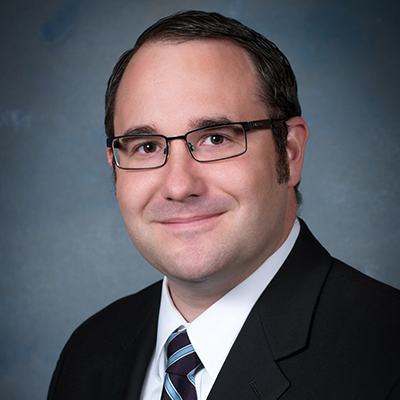Concern over the coronavirus (COVID-19) is rampant. Many extreme measures are being taken and we are being urged to try to limit our activities to those that are more essential. In these uncertain times, we often reflect on our estate planning and end of life decisions. Because of the major impact these have on us and our families, we consider these activities essential and worthy of our immediate attention.
However, for many, the thought of traveling or meeting in a public place seems unhealthy or risky. For those who are concerned about going out in public, we offer to meet with you either over the telephone or via video conferencing through Facetime, Skype Business, or Zoom.
We have all been taught that a valid Will must be executed in the presence of two witnesses who are not related to the creator of the Will AND who are not listed as heirs of the Will. Also, to create a valid Trust, the Grantor (or creator) of the Trust should have his or her signature witnessed by a Notary. However, Nevada law now allows a Will and Trust to be signed, witnessed, and notarized electronically, or virtually, and still be legally valid. See NRS 163.0095 and NRS 13.085). Keep in mind that you still must be over the age of eighteen (18) and be of sound mind.
We have several alternative means for helping you complete your vital estate plan. For an Electronic Will to meet the requirements of the statute, it must be:
a. An authentication form of the testator or a characteristic of a certain person that is unique to that person and that is capable of measurement and recognition in an electronic record as a biological aspect of or physical act performed by that person such as:
i. Fingerprint
ii. Retinal scan
iii. Voice recognition
iv. Video recording
v. Digitized signature
vi. Facial recognition
b. The electronic signature and electronic seal of an electronic notary public, placed thereon in the presence of the testator and in whose presence the testator placed his or her electronic signature thereon; or
c. The electronic signature of two or more attesting witnesses placed thereon in the presence of the testator and in whose presence the testator placed his or her electronic signature thereon.
If you would like to have your Will or Trust prepared, please contact us or give our office a call to schedule a telephone or video conference. Our attorneys and paralegals are here to assist you.
According to a recent news article, the vast majority of the recent population growth in Clark County, Nevada, is from an influx of baby boomers relocating from different states. This trend is expected to continue as baby boomers reach retirement. A baby boomer is commonly defined as a person born during the post World War Two baby boom period of 1946 to 1964. Most baby boomers have established estate plans consisting of revocable trusts, last wills and testaments, powers of attorney and living wills. The potential problem is that these documents were prepared pursuant to the state law where they were residing at the time. State law governing these type of documents can vary substantially. For example, Nevada is a community property state, one of only nine (9) community states in the nation. A person can also incorporate certain Nevada trustee powers in his or her revocable trust by reference. However, almost all revocable trust agreements provide that the law of the state in which the person establishing the trust is residing at the time of the establishment of the trust controls the administration of the trust.
Another potential problem is powers of attorneys and living wills that have been prepared to conform to non-Nevada law. A health care power of attorney in which you appoint someone to make healthcare decisions for you and set forth a statement of desires regarding your health care, is particularly sensitive to state law. The same is true for a living will that states your intentions regarding life-sustaining treatment such as hydration and nutrition when you have an incurable or terminal condition. (In fact, a living will is called a “Directive To Physicians” in Nevada.) Some states are very liberal regarding your health care options and some states are very conservative. If you have a health care power of attorney and a living will that was prepared in conformity with say, Michigan law or some other non-Nevada state law, a Nevada health care provider may not accept them. Needless to say, this can have very serious ramifications for you and your family.

The answer is a simple estate plan check-up. The Jeffrey Burr Law office provides a free one-half hour consultation during which an estate planning attorney can review your current estate plan documents. All estate planning attorneys at the Jeffrey Burr Law office are certified public accountants or hold advanced degrees in taxation. Although a periodic estate plan check-up is always a good idea because of changes in circumstances or changes in Nevada or federal law, an estate plan check-up is especially important to someone moving to Nevada.
A holographic will is a handwritten last will and testament written and signed by the Testator. Nevada law provides:
NRS 133.090 Holographic will.
As such, holographic wills are valid if the will is (1) signed, (2) dated and (3) the material provisions are written by the person creating the holographic will.
Even though holographic wills are valid in the state of Nevada, they are often not recommended for several reasons:

Holographic wills are valid in Nevada and can serve an important purpose if used properly. Should you have any questions regarding holographic wills in Nevada, feel free to contact our office.
A recent article in Forbes listed one author’s opinion of the 7 Major Errors in Estate Planning.
The 7 Major Errors were listed as:

I have the opportunity to discuss Major Error Number Two.
ONLINE OR DIY RATHER THAN PROFESSIONALS
There is an abundance of advertisements which purport that a person can create their own will or trust through the use of a certain company’s website. These advertisements have led to the often-repeated question I hear during an initial consultation – why should I use your services over an online company? I have reviewed many of these internet wills and trusts, and many of these internet documents are laughable leading me to believe that an attorney had no hand in the creation of the documents. While I would readily admit that the other documents I have seen seem to be fine, legally speaking, they often demonstrate a lack of personalization in meeting the client’s goals and objectives. Recently, I decided to go through a more widely recognized do-it-yourself internet site that allows a person to create his or her own legal documents. Although my experience was better than I had expected, I was left wanting the site to do things that it did not offer. This may be why the site uses the disclaimer that “LegalZoom is not a law firm and is not a substitute for an attorney or law firm.” These internet sites are not meant as attorney substitutes, and I would add that not all attorneys can properly prepare estate planning documents. While such sites are slightly less expensive than an actual attorney, there is much more to a properly prepared estate plan than the legal document itself. As Mr. Clarfeld states in his Forbes article, “estate planning documents should represent the culmination of a well thought out financial and estate plan. Fill-in-the-blanks documents are not a plan and one size definitely does not fit all.”
- Attorney A. Collins Hunsaker
A recent article in Forbes listed one author’s opinion of the 7 Major Errors in Estate Planning.
The 7 Major Errors were listed as:
I have proposed to my colleagues that we take turns discussing these 7 errors and how to remedy these problems for our clients. Naturally, I’m taking the first error, since it is the easiest, but you’ll hear from me again before we have completed all seven.
NOT HAVING A PLAN
This one is easy to fix. Get a plan. It’s probably an over-generalization, but most estate planning firms offer free consultations. See an attorney and learn what is involved and how much effort and cost is required to get a plan in place. This error universally applies to all individuals, whether old, young, married, single, wealthy, with children, without children, etc. In Nevada, we usually recommend revocable/living trusts for property owners in order to avoid the probate process in Nevada courts. Other important elements to an estate plan in Nevada include a pour-over-will, a healthcare power of attorney, a directive to physicians (or living will), and a financial power of attorney. A good attorney will also provide assistance and advice on how to “fund” your trust with the proper assets in order to accomplish your goals.
No contest clauses in a Trust and Will have been discussed previously in this blog. A no contest clause is a provision in a Trust or Will that provides that any beneficiary challenging the validity of the terms of the Trust or Will shall have his or her share reduced or eliminated. Nevada law has recognized the validity of no contest clauses with certain exceptions.
Along with these legal exceptions, many courts in the past have held that the actions of the beneficiary must directly relate to the Trust or Estate itself and/or an actual lawsuit must be filed in court in order for a no contest clause to be enforceable. The last session of the Nevada Legislature has expanded the existing law to make it clear that, with certain important exceptions, a beneficiary’s share may be reduced or eliminated under a no contest clause by conduct contrary to the express wishes of the Decedent as set forth in the Decedent’s Trust or Will. Under the new law, which is effective October 1, 2011, conduct by a beneficiary that could trigger a no contest clause may include, without limitation:
However, the new law specifically states that a no contest clause will not be enforced if the beneficiary seeks only to:
Also a no contest clause is unenforceable, notwithstanding its terms, if the court finds that the challenge to the Trust or Will, any document referenced in or affected by the Trust or Will, or any other Trust or Will related document was made in good faith based on probable cause.

Except for these four exceptions, it is now clear under Nevada law that a beneficiary could see his or her share of the Trust or Estate reduced or eliminated via a no contest clause even though the actions of the beneficiary do not directly relate to the Trust or Estate itself and/or the beneficiary does not bring a formal action in court challenging the validity of the terms of the Trust or Will.
- Attorney John Mugan
Recently, it seems that I’ve lost more than my share of clients. Death is a part of our business, but it still troubles me sometimes. Two clients in particular come to mind that recently passed unexpectedly. One client was living in life’s sunset and he certainly experienced a full life. The other died very prematurely leaving young children and unfinished business.
In all cases, I am glad that the client found the time and allocated their resources to come in and prepare an estate plan. I hope that our work will make things easier for their families. It makes me wonder if I would have a Will in place if I could not easily prepare my own?
I feel like I am always borrowing something for my blog posts from other sources – but I found this blog post from CNBC about people procrastinating about preparing a Will. The numbers that were shared were surprising, even to me:
The best part of the blog discussing the survey stated that one in three of the respondents would rather experience the following instead of creating a Will: 1) Prepare a tax return 2) have a root canal 3) give up sex for a month.
So, for you faithful readers of the Jeffrey Burr Blog (all seven of you), statistically at least a few of you do not have a Will. So, let’s get it done, but let’s also not ignore our dental health, tax deadlines, and consortium.
Trusts and Wills often provide that a particular asset pass to a certain beneficiary. Such a bequest is a “specific bequest” in that it is satisfied only by receipt by the beneficiary of the specific, particular property identified in the Trust and Will. For example, a person leaves “100 shares of my Apple, Inc. stock to my daughter, Kathryn.” What happens if at the time of death, the decedent or his or her Trust no longer owns any Apple stock? Generally speaking, if specifically bequeathed property, such as the Apple stock in this example, is not in the decedent’s Trust or estate at the time of death, the bequest is adeemed, the bequest fails and the beneficiary receives nothing. This is known as “ademption”, namely the failure of a bequest because the property is no longer in the decedent’s Trust or estate at the time of his or her death. In this example, Kathryn would receive nothing. It is essential that if the decedent does not wish the bequest to adeem, the Trust or Will must clearly indicate this intent. An example of such stated intent would be:
“In the event I no longer own any shares of Apple, Inc. at the time of my death, this bequest shall not adeem but my daughter, Kathryn, shall receive in cash an amount equal to the closing value of 100 shares of Apple, Inc. as of the date of my death or as of the most recent trading day preceding my death.”
Other questions could arise even with the inclusion of the above language. For example, what if Apple, Inc. or its assets are acquired by a separate corporation prior to the date of death in such a fashion that the corporate entity Apple, Inc. no longer is in existence on the date of death? Does the bequest then adeem, or does Kathryn receive in cash an amount equal to 100 shares of the corporation that acquired Apple or its assets? Again, the Trust or Will needs to clearly state the intent of the decedent in the event of such contingencies.
Contrast this with a general bequest of a specific dollar amount such as where the Trust or Will provides for a bequest of “Thirty-five Thousand Dollars ($35,000.00) to my daughter, Kathryn.” In this latter situation, it makes no difference whether the decedent still owns any Apple stock or not as the general bequest of Thirty-five Thousand Dollars ($35,000.00) to Kathryn will be satisfied out of the cash or liquid assets of the Trust or Estate or by the sale of other general assets of the Trust or Estate. However, although Kathryn would receive the general bequest of Thirty-five Thousand Dollars ($35,000.00), she would not share in any appreciation (or depreciation) in the value of Apple, Inc.
Accordingly, it is important that an estate planner insure that the client fully understands the pros and cons of providing for a specific or a general bequest. It is most important that the client’s Trust and Will clearly state his or her intent so that such wishes and desires are not defeated by future events arising after the Trust and Will is executed but prior to the date of death.
Nevada, like most states, permits a person’s Last Will And Testament and Trust to refer to a separate, written statement or list to dispose of “tangible personal property” not otherwise specifically disposed of by the terms of the Last Will And Testament or Trust. In this regard, the question often asked is “What is tangible personal property that can be disposed of by such a written statement or list?” The applicable Nevada statute attempts to answer such question by defining certain tangible personal property that cannot be disposed of by such a written statement or list, namely “money, evidences of indebtedness, documents of title, securities and property used in a trade or business.” NRS 133.045. Accordingly, a person should never attempt to dispose of “money, evidences of indebtedness, documents of title, securities and property used in a trade or business” via a written statement or list. Examples of these items are cash, financial accounts, promissory notes, deeds of trust-mortgages, stocks, bonds and real estate.
Common examples of tangible personal property that can be disposed of by such a written statement or list are furniture, furnishings, rugs, pictures, books, silver, linen, china, glassware-crystal, objects of art, wearing apparel, jewelry and guns. One of the most common examples of property disposed of by a written statement or list is the wedding and engagement rings of the testator passing to a particular daughter or granddaughter.
Some of the advantages of using such a written statement or list are that it can be prepared before or after the execution of the Last Will And Testament and Trust, and it can be altered by the testator after the list has first been prepared. However, one must be careful to abide by the legal requirements of a valid written statement or list under Nevada law such as the statement or list must contain the date of its execution, the statement or list must contain a reference to the Last Will And Testament or Trust, et cetera.
The attorneys at Jeffrey Burr Ltd. have many years of experience in estate planning, and always inform clients of their option of disposing of part or all of their “tangible personal property” via a written statement or list. In the event a client wishes to utilize such a written statement or list, we insure that such statement or list is valid, enforceable, and carries out the wishes of the client.
There’s a funny commercial on TV lately. It involves a wealthy family gathering for a reading of the Will. If I recall correctly, most of the estate goes to the new (blonde and young) companion. But the only son of the Testator gets the satellite/cable TV package so that he can stream movies and TV shows directly to his television. He then goes berserk with joy.
That commercial got me thinking about contests or challenges to established planning. Most clients want to avoid their heirs fighting over the estate or having to defend the estate from an unintended heir. It can be a financial and emotional drain on the beneficiaries of the estate. Estate Planners try to do their best to ensure that the formalities are followed when estate planning documents are signed and that the person executing the documents has capacity and understands the effect of the documents.
I recently read an interesting article on this topic. (A Will and a Way, WALL STREET JOURNAL, by Anne Tergesen) The article points out that Nevada (among a handful of other states) now allows for pre-mortem probate. What this means is that a person can present his or her planning documents to the court and require a contesting beneficiary to present his challenges to the court before the Testator (person who signed the Will or Trust) passes away. The advantage is that the best witness for the court is still alive to defend his or her actions. The disadvantage is that the client must disclose his or her documents with the court and make the contents known to the beneficiaries. The result is that if the person later changes his or her Will or Trust, then the process must occur again. It’s an interesting idea and I don’t know if our firm has handled a case like this in our local probate court. But as a planner, it’s important for me to know that this is available.
The article points out some other tools that estate planners may use to prevent a challenge to a Will or trust after the client passes away:
1. Use a video message from the Testator to explain provisions of the Will. This may soften the blow to beneficiaries, but might also backfire if the Testator says something inconsistent with the Will.
2. Include a no-contest clause. We do this at our firm, and they are fun to talk about and point out to the client, but are not always enforceable and would not be enforceable if there was a genuine concern that the Testator had capacity or was subject to undue influence.
3. Provide a gift of cash or other property to a person that is suspected to challenge the Will. (I’ve never heard of this one and it made me chuckle). If the person accepts a gift from the Testator at that time, it will be difficult for the person to claim that the Testator was incapacitated at the time of the gift.
Other standby techniques not discussed in the Wall Street Journal article include:
1. Making a specific bequest to a potential challenger which then gives the no-contest provision some effect (they stand to lose something if they challenge and lose).
2. Contract around the challenge: use a family settlement agreement (signed by all family members including potential challengers).
3. Leave the person the satellite/cable TV package so that they can stream hundreds of movies and TV shows directly to their TV. (Probably won’t work).

"*" indicates required fields